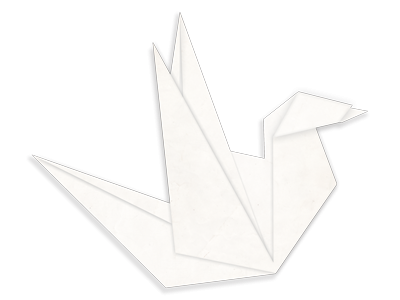Brochure
FELLOWSHIP OVERVIEW
The Center’s mission is to promote peace through a holistic approach to training which combines conflict resolution methods, peacebuilding and conflict prevention with an emphasis on more sustainable economic, political, and human development.
ABOUT THE CENTER
FELLOWSHIP BENEFITS
Rotary World Peace Fellows are supported by the fellowship for the 21-month duration of the program. The fellowship includes full tuition and other university fees, a monthly stipend for room and board, transportation and stipend for a summer internship, funding for participation in academic conferences, and transportation between the fellow’s home and study destination at the start and end of the fellowship period.
Monthly Seminars
The Duke-UNC Rotary Peace Center organizes 6-8 monthly seminars during the academic year for Fellows. These seminars vary but may include a private meeting with a major public figure, a professional development workshop (such as public speaking), or outside experts in the field of peace and conflict resolution. Some of our seminars are open only to Rotary Fellows while others are public events. Examples of seminars during the 2011-2012 academic year:
• Seminar with Edward Giradet, journalist and author, on “Journalists: a force for humanitarian action?”, which was video-conference with multiple Rotary Centers
• Lunch seminar with Trita Parsi, President of the National Iranian American Council on the topic of US-Iranian Relations
• All-day workshop on public speaking skills
• Panel Discussion at Duke on Collaboration between the Military and NGOs, with Lt. Commander Can Straub, Dr. Chris Seiple and US Ambassador (ret.) David C. Litt
All Rotary Fellows must take part in a summer internship, also called Applied Field Experience (AFE). The AFE is a requirement of the Rotary World Peace Fellowship and is funded, at least in part, by the fellowship.
The AFE takes place at the conclusion of the first year of study, during the summer break. Most internships are for a duration of 8-12 weeks and give Fellows hands-on experience as a complement to the academic work learned in the classroom. Rotary Fellows arrange their own internships with assistance from the Managing Director, the MIDP Professional Development Coordinator and RWPF alumni.
Past Rotary Peace Fellows at the Duke-UNC Rotary Center have undertaken internships in organizations around the world, including:
• Partners for a Democratic Change, Washington, DC
• Grameen Bank, Bangladesh
• UNDP Bureau for Crisis Prevention & Recovery, New York
• Institute for Historical Justice & Reconciliation, Netherlands
• UNICEF, Geneva, Switzerland
• Care International, Dar es Salaam, Tanzania
• UNESCAP, Bangkok, Thailand
• Habitat for Humanity International, Costa Rica
• UN Department of Peacekeeping Operations, New York
• European Commission to the EU, Vietnam
• World Bank, Washington DC
During the first academic year, all Rotary Fellows from Duke and UNC participate in a two-day professional development trip to Washington DC, which is organized in cooperation with the MIDP program at Duke. Fellows attend a series of informational meetings at the World Bank and numerous other NGOs and international organizations which are headquartered or have offices in the area. Time is also built into the schedule to allow participants to arrange their own meetings and interviews. This excellent networking opportunity is often the first step in arranging the required summer internship. All costs associated with this trip are covered.
Building sustainable PEACE through training in CONFLICT RESOLUTION & a holistic approach to INTERNATIONAL DEVELOPMENT
The Rotary Peace Centers offer individuals committed to peace and cooperation the opportunity to pursue a masters-level degree in international studies, peace studies, and conflict resolution. Through the partnership between The Rotary Foundation and seven universities worldwide, Rotary World Peace Fellowships are offered annually on a competitive basis for study at the Rotary Centers. Through academic training, study, and practice the Rotary Peace Centers program develops leaders who are catalysts for peace and conflict resolution in their communities and around the globe.
This video was created by Theo Martins, and we are so grateful to him for his work in putting this together!
FELLOWSHIP REQUIREMENTS
Up to 10 Rotary World Peace Fellows are selected for the Duke-UNC Rotary Peace Center each year.
Rotary World Peace Fellows must have:
ROTARY PEACE FELLOWSHIP TIMELINE
The information in this section is specific to the Duke-UNC Rotary Peace Center.
All applications for the Rotary Peace Fellowship Program must be submitted through a Rotary district. The fellowship application and selection process consists of three levels: club, district, and world. There is no limit to the number of qualified candidates a club and/or district may submit to the world competition.
February – April 2019
Complete application.
Receive district endorsement.
April – June 2019
Rotary district interviews
July – October 2019
Applications screening
and selection
Late October 2019
Fellowship awardees
are notified of their selection.
November 2019 – April 2020
Fellowship awardees
submit univeristy applications
April 2020
University admissions
decisions are generally known.
August 2020
New Rotary Peace Fellows
arrive to begin their studies.
HOW TO APPLY
“The Rotary Peace Fellowship is a truly unique opportunity for me. It’s not only about the generous award that makes it possible to study here in the first place. What’s even more is the international network, the trainings, the career support and the fellowship with inspiring professionals from all over the world – that’s what’s changed my life. Thank you, Rotary!” – Johanna Schubert


